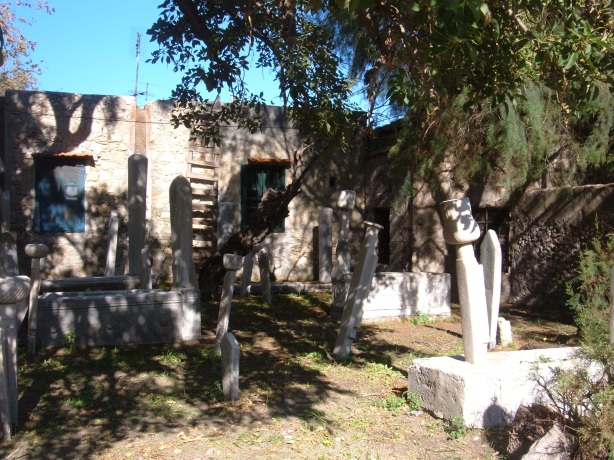For Muslims, graveyards become an election issue
By Danish Ahmad Khan

Come elections – whether parliamentary of assembly – Muslims in India firm up their girdles and become ready to rake up their pet issues such as Babri Masjid, Gujarat riots, status of Urdu etc. This time even graveyards have become election issue, particularly in a Delhi parliamentary constituency, if not elsewhere. Members of Muslim community are up in arms over the issue of graveyard in Northeast Delhi parliamentary constituency from where Mayawati’s Bahujan Samaj Party (BSP) has fielded Haji Dilshad Ali as the party candidate for upcoming general elections. A decrepit Muslim graveyard for the Mustafabad, Kabir Nagar and Babarpur area will be at the top of agenda during electioneering. Locals in the areas complain that there is no boundary wall around the graveyard. Heaps of garbage can be seen strewn and street dogs loitering and sniffing around the graves looking for human remains. Sometimes the problem is such that the dogs in fact succeed in taking out the bones and skulls from the graves and feast on them. The leftovers keep rotting for days thus creating bad odour and polluting the environment. The issue has therefore become quite emotional and sensitive for local Muslims and the BSP candidate is also ready to cash upon this and use it extensively in his campaign. It may be recalled that Haji Dilshad Ali had contested the Delhi assembly elections from Babarpur constituency on BSP ticket last year and succeeded in getting 28,000 votes. During the upcoming parliamentary elections, the BSP has emerged as the only party in Delhi to provide tickets to three Muslim candidates namely Haji Yunus from East Delhi constituency, Haji Dilshad Ali from Northeast Delhi constituency and Mustakeem Ahmed (Billo) from the Chandni Chowk Lok Sabha constituency.

If one goes by what Delhi Wakf Board officials say the scarcity of graveyards is indeed a real problem for the Muslim community in India’s capital. Caretaker of Delhi Wakf Board’s mosques and graveyards Mehfooz Mohammad said, “At least 10 more graveyards are required now all over Delhi. Only a handful of them are operational today. Many of the graveyards have also been illegally occupied and litigation is underway to get the land back.” According to the 1970 gazette notification, 488 Muslim graveyards exist in Delhi. However, as of now there are only 25-30 graveyards that are actually operational. The gravity of the problem which Muslim community is facing insofar as graveyards are concerned can be really assessed by the available data. Another problem of the scarcity of graveyards are some members of the Muslim community themselves. According to the Shariah (Islamic law), Muslims are enjoined to make kuchha (temporary) graves in order to facilitate more burials in a particular grave. However, quite on the contrary, some members of the Muslim community openly defy the Shariah and make permanent concrete graves for their deceased kins. They also even go to the extent of erecting tombstones thus making it difficult to bury in layers. This leads to the space shortage in graveyards hence making the problem more severe.
It is not only India’s capital Delhi which is facing the problem of the scarcity of graveyards. Another metropolis Kolkata, the capital of the state of West Bengal, is also facing the same problem. Here the situation is equally grave. According to a report in Indian Express tension erupted in Paharpur under the Garden Reach police station area on 24 March 2009 after caretaker of a Muslim graveyard was found incinerating decomposed bodies to make room for new bodies. The locals, who arrived for the burial of a body around 3 pm, said that they smelt something burning inside the graveyard. Much to their dismay they found that some bones and skulls were found burning lying in a mound of dry grass and leaves. Later over 2,000 locals gathered at the graveyard and tried to beat the caretaker Sheikh Jumman. One of the residents alleged that the graveyard caretaker Sheikh Jumman and his assistant Sheikh Jiauddin resorted to the practice of setting the bodies on fire only to make room for more bodies so that they could earn more money. The residents complained that the graveyard had a severe shortage of space since the ground had been full for the last one year. However, the police arrived on the scene and succeeded in defusing the tension after taking the two accused into police custody.
Elsewhere in the country, even the indigenous Muslims in the northeastern state of Nagaland are also facing problems related to graveyard. Here, however, the problem is of a different kind. According to the indigenous Muslims of Purana Bazar and Naharbari villages of East Dimapur the oldest graveyard is in a pitiable state. The indigenous Muslims of these two villages had acquired the graveyard at Naharbari village in 1857. This oldest graveyard has however now turned into a garbage dump for the area. The complaint being that waste from households are being continuously dumped here thus creating a highly unhygienic environment, facilitating the breeding of mosquitoes and other insects and spreading pollution. The Muslim Committee of Purana Bazar and Naharbari on their initiative conducted a mass social work to dispose off the waste recently. They also urged the residents of the houses surrounding the graveyard not to throw any garbage there since it would hurt the religious sentiments of the Muslim community. They also explained to the residents that the graveyard is the most holy place for the believers.


